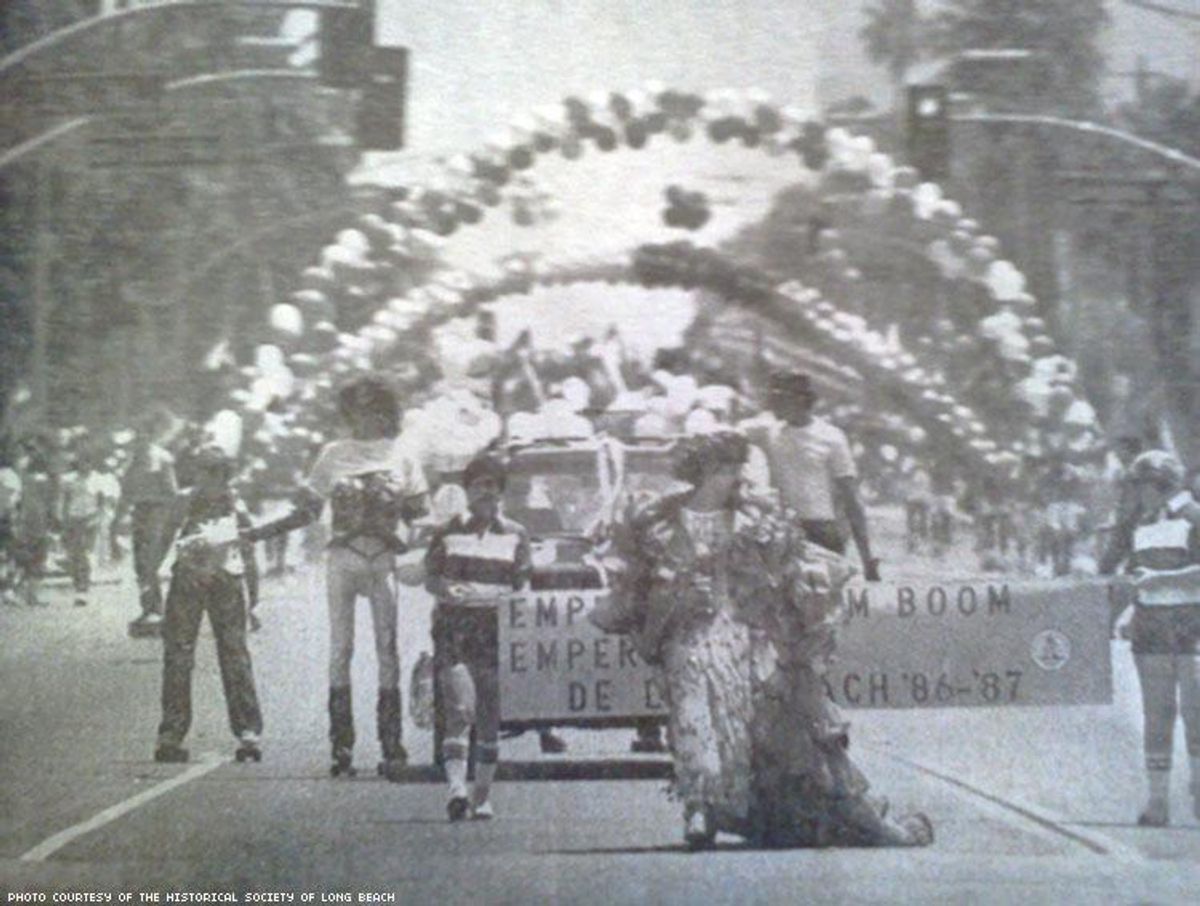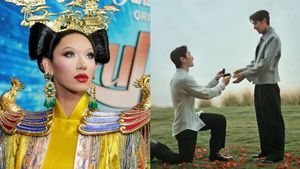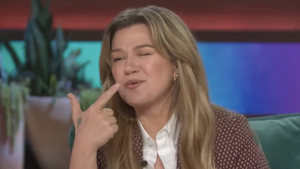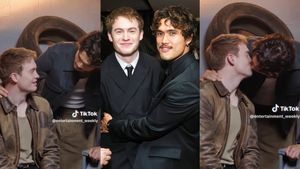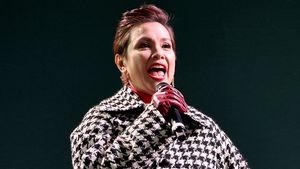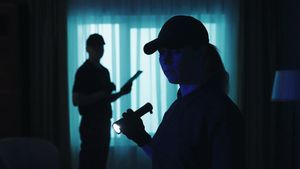One week before its Pride parade and festival were scheduled to occur in May 1986, the organizer, Long Beach Lesbian and Gay Pride faced cancellation of the events. Because of an insurance industry crisis, LBLGP had been unable to purchase the special events insurance coverage required by the city of Long Beach's special events ordinance. And the city of Long Beach, which was not very hospitable to the group in its early years -- the city became supportive as years passed -- refused to waive the requirement.
Cancellation of the parade and festival would have been financially detrimental to LGLGP. For LGBT people in Long Beach, who were in the midst of the AIDS crisis and confronting discrimination locally, statewide, and nationally, and looking forward to an event focused on expressing pride in who they were and educating their city, cancellation of the parade would have been devastating.
In the morning of Wednesday, May 14, 1986, three days before the festival and four days before the parade were set to occur, working as a volunteer attorney for the American Civil Liberties Union Foundation of Southern California, I appeared in Los Angeles Superior Court to urge Judge Warren Deering to enjoin the city from enforcing the insurance requirement, on the grounds that it violated the group's and LGBT community's rights to freedom of speech. Judi Doyle, the tough, 6-foot-2-inch-tall president of LGLBP, accompanied me at counsel's table.
The Long Beach ordinance imposed burdensome fees and a special-events insurance requirement on groups seeking to use city property for marches, demonstrations, and events. I argued that these financial burdens and the permit application process fettered LBLGP's -- and the LGBT community's -- rights to freedom of expression under the First Amendment to the U.S. Constitution and Article I, section 2 of the California Constitution.
Judge Deering, who was in his 60s, was known as bright and conservative. For example, just three months after he heard LGLBP's request for an injunction, He approved removal of another judge from presiding over a lawsuit challenging Los Angeles County's regulation of gay bathhouses. A conservative Republican member of the Los Angeles County Board of Supervisors had questioned the impartiality of that judge because of his former ties to the Democratic Party.
Both the Long Beach city attorney and I had submitted papers to the court explaining our positions on whether enforcement of the local parade ordinance should be enjoined. Judge Deering asked several questions during the hearing, but without signaling how he would rule. Then he asked us to sit, as he left the bench for several minutes.
When the judge returned, both the Long Beach attorney and I stood. Ruling from the bench, Judge Deering found it likely that LGLBP would prevail on its claim that enforcement of the insurance requirement was an unconstitutional abridgment of its rights to freedom of speech, and he issued an injunction prohibiting the city from enforcing it. The parade and festival could proceed. Judi Doyle burst into tears, jumped up from her seat, and towering over me, gave me a hug so strong it almost knocked the air out of me. I held back tears myself.
I still feel the emotion of that morning. It was the first time since I started practicing law less than four years earlier that I felt I had made a difference, righted a wrong, protected a client in need whose rights were at jeopardy, and promoted justice and fairness.
In the following years, I took the case to trial and up to the Court of Appeal, where the trial court's decision holding parts of the ordinance unconstitutional was affirmed.
In the years since that case, I have handled other pro bono matters involving LGBT or First Amendment rights, but the bulk of my practice, like that of most civil lawyers, has involved fights over money. The American civil justice system is not perfect, but it can produce a result that approximates a rough sense of justice. And that is what has driven me as a lawyer and why I continue to find the practice of law fulfilling.
In any case, whether I am fighting for a business owner to recover his purchase price from the larger company that purchased his company, employed and then terminated him, reneged on payment and then sued him; or defending a company that is facing a class action claim for an alleged failure to comply with wage and hour laws; or protecting a firm against a practice group that departed and misappropriated the firm's trade secrets, what keeps me enthused, involved, and invested is to achieve justice for my clients. It is what motivates me, it is what helps me cut through the often petty squabbles that can bog a case down and increase its costs, and it is what keeps me centered and focused on a strategy with an endgame for my client.
It is not every day that I have the opportunity -- and honor -- to successfully protect the constitutional rights of a client so that the following day an event that uplifts a community can proceed. But each day I can help restore justice to a client. The LGLBP case showed me how, with tenacity and a sense of purpose, a lawyer in court can make a difference. I continue to take up that mantle with pride and gratitude.
WILLIAM WEINBERGER is a partner at the law firm Parker Milliken in Los Angeles. His practice focuses on protection of trade secrets, litigation of business tort claims, and advising and defending companies in employment matters, which often include claims related to anti-LGBT discrimination.
Photo above: Historical Society of Long Beach, LGBT History Project
